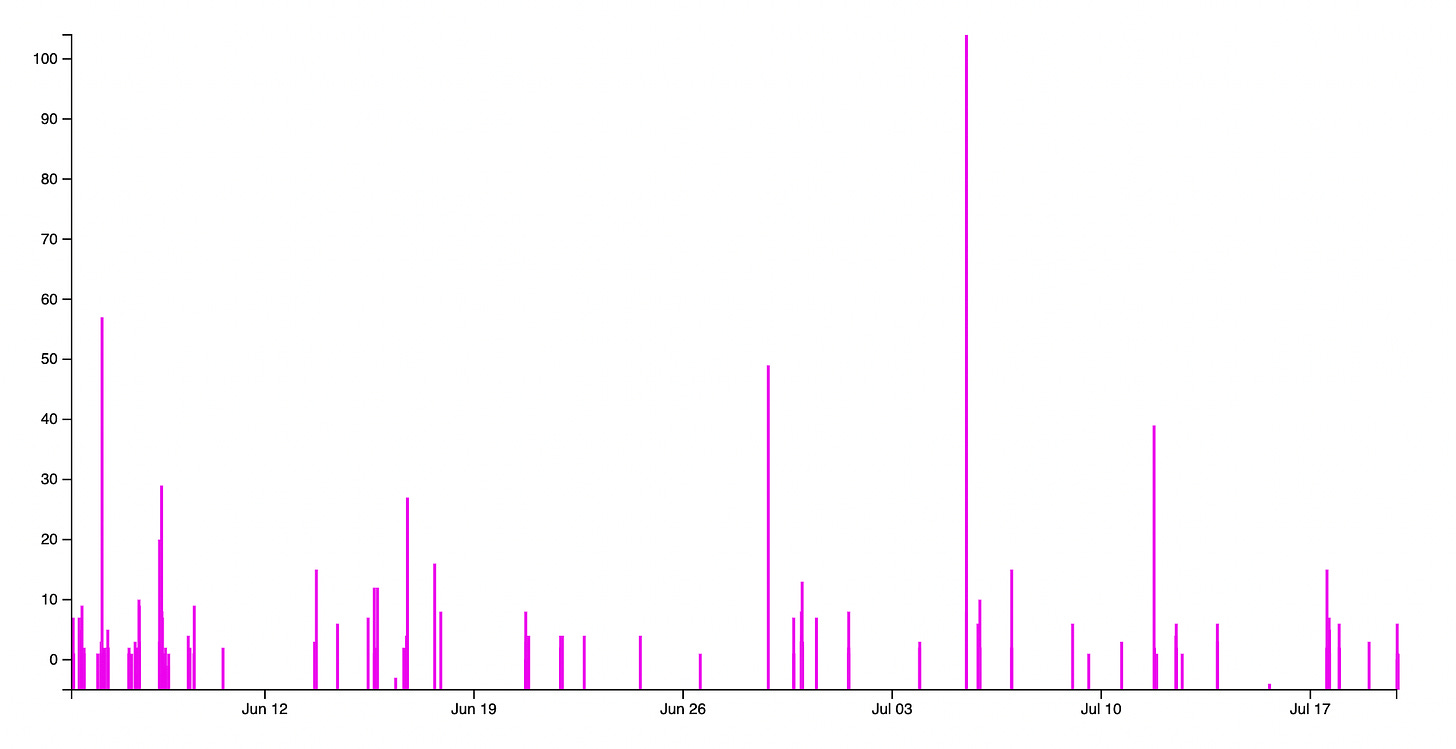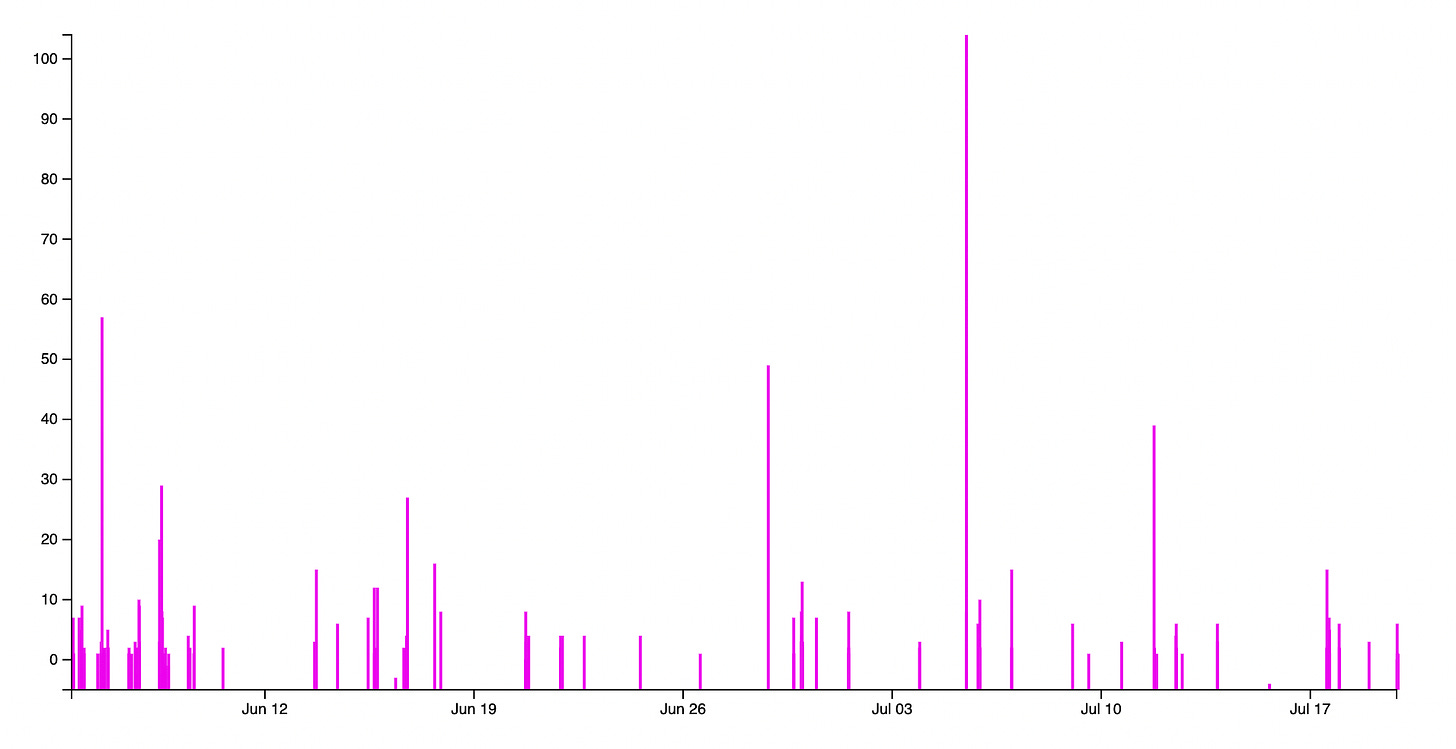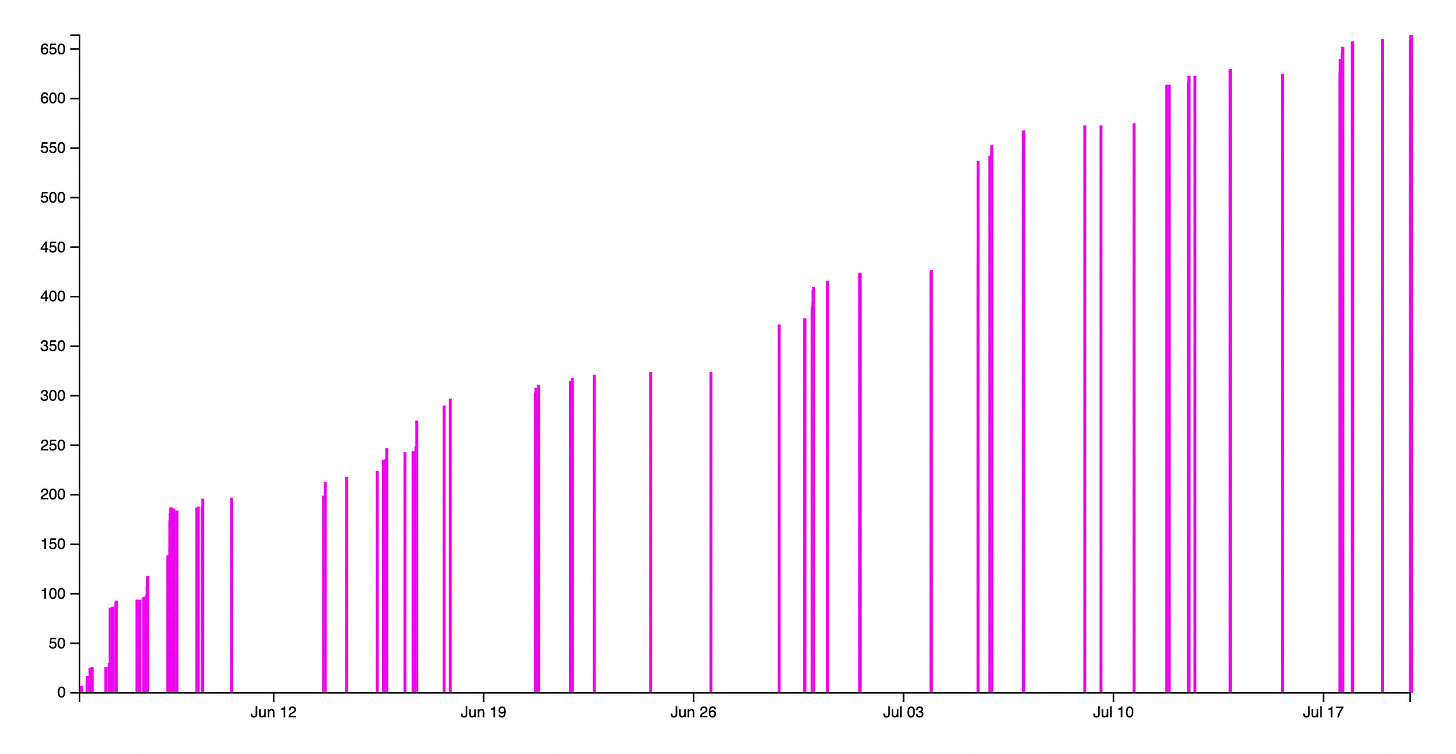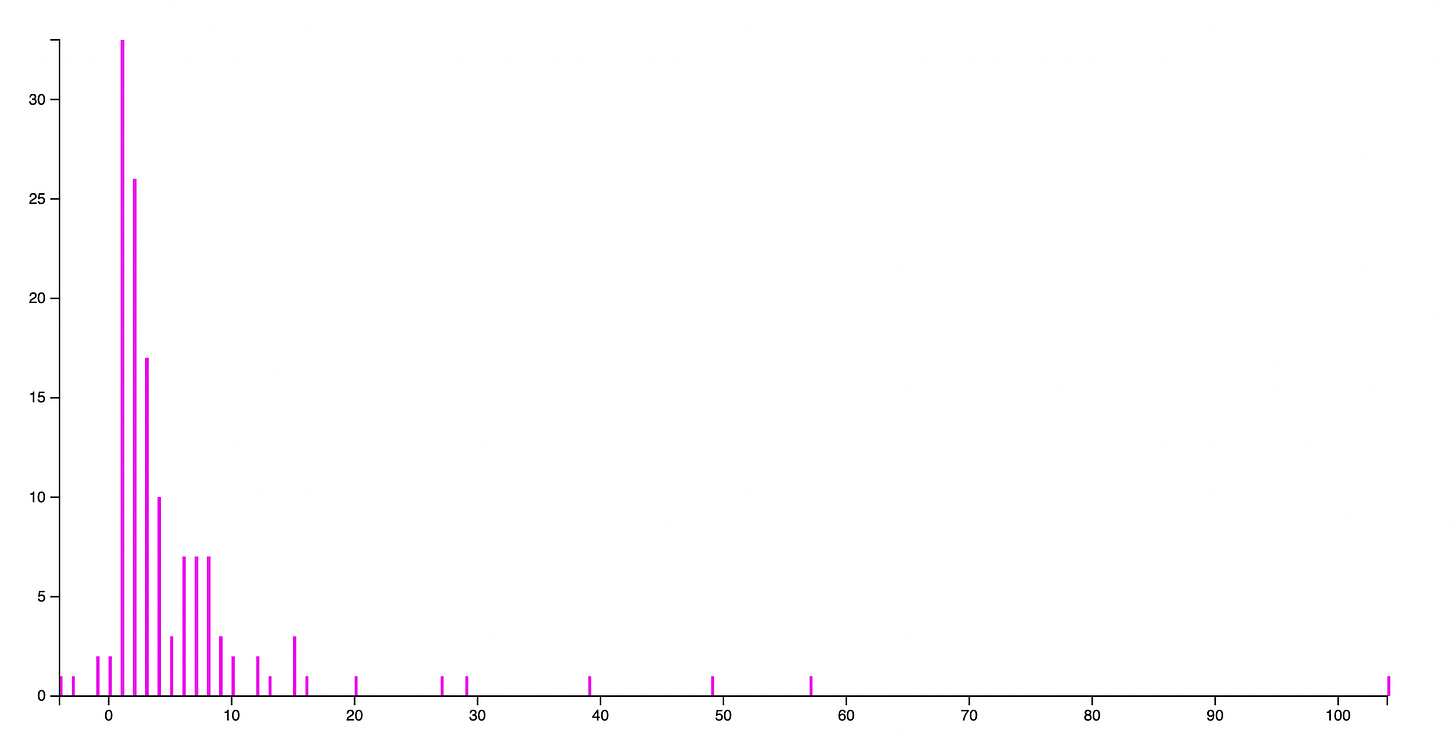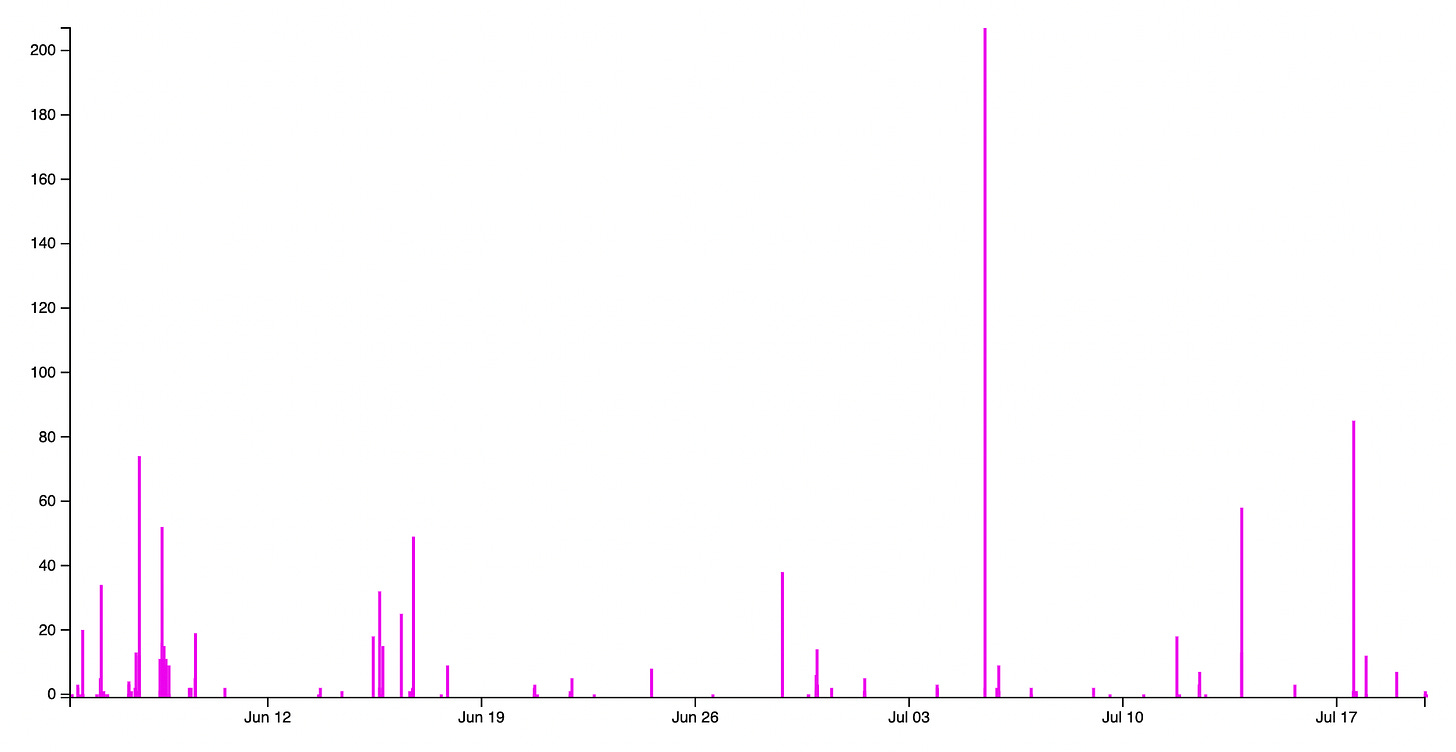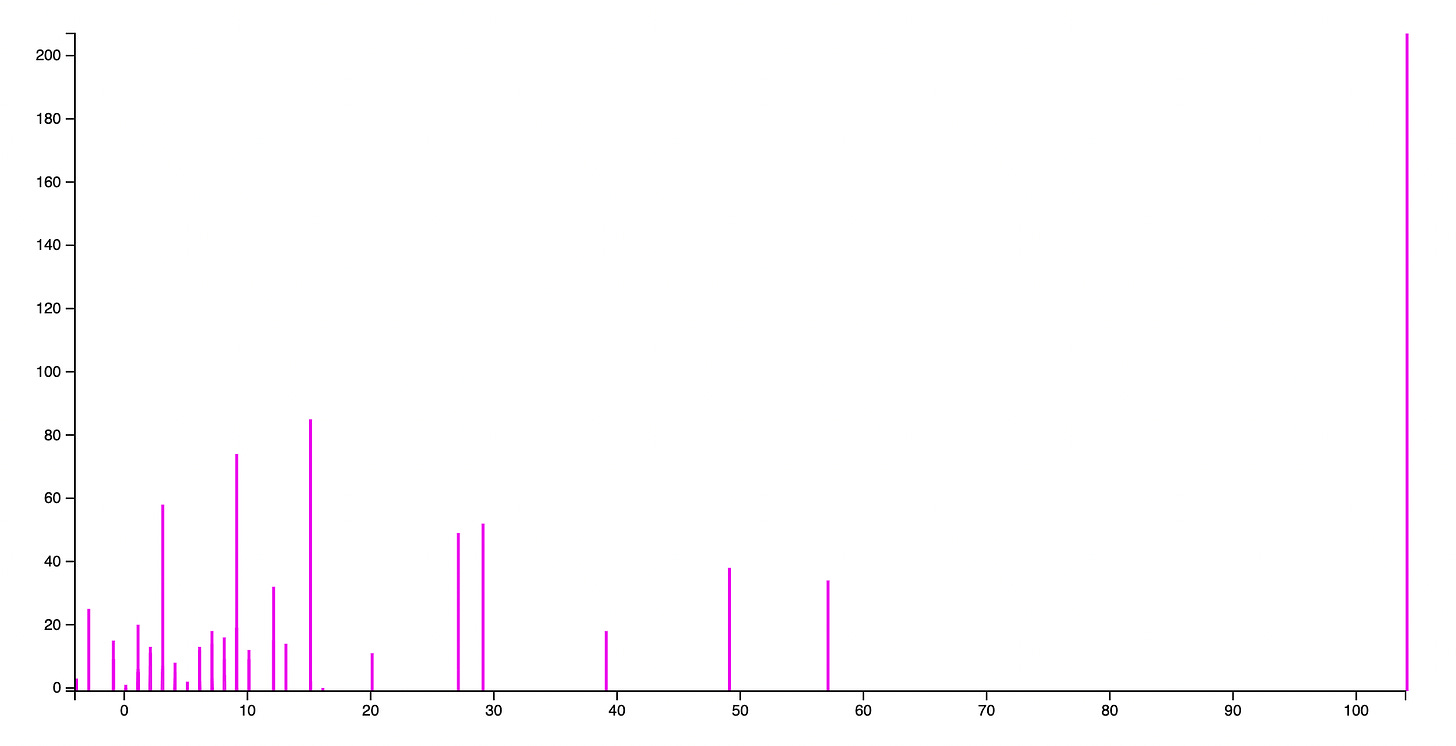Commenting on Hacker News
View on SubstackI’ve been a lurker on the Internet for a couple decades now. Despite frequenting both popular and niche message boards, I’ve rarely created an account, let alone posted. Posting somehow felt both beneath and above me—there’s so much brilliance and nonsense in the comment section, and it’s hard to know where I’d fall in the spectrum.
I also complain constantly about the quality of online discussions. Recently, this has begun to strike me as a lazy and hypocritical take. If I want a better community, I should do my part and participate.
So I resolved to spend a month commenting on HN, with a loose goal of reaching 501 karma. While I managed to achieve this, my overall impact on the quality of discussion is up for debate. Let’s explore.
Outline
Karma Farming
Why 501 Karma?
Anonymity
Quantity over Quality
The New Page
The Data
Scores
Replies
Post Analysis
The Good
The Bad
The Ugly
Karma Farming
An explicit Karma goal might strike some long-time commenters as uncouth. It’s an easy system to game, and Karma-obsessed users can lead to a degradation in content by spamming and reposting popular content. But if social networks are going to gamify participation, it’s important to understand both the strategy and sportsmanship of playing the game. Here’s what I’ve learned.
Why 501 Karma?
Hacker News grants users some extra features and privileges as they climb the Karma ladder. Top prize is a downvote button at 501 Karma. It seemed like an achievable goal, with the added bonus that a downvote button would allow me to help moderate some of the worst comments.
Anonymity
Choosing to post anonymously, rather than using my real name, made things much easier. I’ve occasionally commented under my real name, and am embarrassed looking back at my post history. There’s nothing terrible, but I’m sure some of my colleagues and friends have stumbled upon it and smirked. This might be projection or paranoia, but it causes enough anxiety to deter me from posting regularly.
With an anonymous account, I no longer have to do that “but what if…” pause before clicking Submit.
The obvious corollary here: don’t be a dick. Posting anonymously gives people the latitude to say things they’d never say to someone’s face. I’ve tried to rein myself in, but even so I notice the effect of the mask, and have had to edit more than one post for dickishness (see The Ugly below).
Quantity over Quality
This stratagem seemingly runs counter to my mission of contributing productively. Let me explain.
My biggest impediment to posting is paralysis. I can stare at a comment section for half an hour, wondering which of my ideas to voice and how best to phrase it. So I’ve adopted Google’s advice on pull requests: if it’s a net win, submit. Great is the enemy of good.
As we’ll see below, my complete inability to predict which posts would do well made this imperative. Twenty minutes spent agonizing over a parenthetical could earn me zero upvotes.
So the goal here isn’t to spam. It’s to focus on getting many reasonable ideas on the table, rather than a handful of perfectly shaped comments.
The New Page
It’s easy to get lost in comment threads with 100+ posts. Once the discussion takes off, there’s a feedback loop where the top posts get the most eyeballs, and therefore the most upvotes. New top-level comments will likely fall well below the fold.
I like to hang out on the new page, where the most recent posts come through. Honestly I was surprised at the level of quality here—on many sites it’s full of nonsense (but be sure that the show dead setting is turned off).
If a post catches your eye that already has 3+ upvotes, jump in! There’s a decent chance this post will hit the front page, and you’re likely to be the first commenter. Don’t forget to upvote it yourself.
Upvoting high-quality posts in new is also a great way to help the community. These are the real heroes, who sort through the firehose of posts and signal-boost the best ones, so the rest of us can lazily peruse the front page.
The Data
Enough strategy—let’s see how I performed.
Here’s a visualization of my posts over time, showing how many points each one got:
Between June 8th and July 19th, I created 135 posts, an average of 3.3 posts per day. I’m honestly surprised at this level of engagement—I’ve never posted nearly this frequently, and it didn’t feel like that much.
You can see I was most active at the beginning, and my average score didn’t improve much over time, if at all. This too surprised me—I thought I’d easily figure out what does and doesn’t click after a week or two.
Scores
My top post (see The Good below) got 104 points, and the worst (see The Bad) got downvoted to the lowest possible score of -4 points. The average post had 5.9 points, with a median score of 3.
Six of my posts (4.4%) were net-downvoted, and 96 (71.1%) got at least one upvote (not including the initial fake point everyone gets).
Here’s a graph of my cumulative Karma over time:
I hit the 501 goal on July 5th, three days ahead of plan, thanks to the 104-pointer. It’s pretty clear that a handful of posts are responsible for most of the Karma: almost half of the Karma (325 points) comes from only seven comments. This graph shows the distribution of scores:
I imagine this performance is pretty average for a new commenter. I would love to see the variance between posters, but sadly HN will only show users their own scores.
If you’re up for helping me compile a slightly larger dataset here, see this GitHub repo for details on how to download your data.
Replies
Surprisingly, I got a lot more satisfaction out of replies than out of scores. Starting a good discussion is really gratifying. And there were a few short back-and-forth discussions that I found particularly rewarding.
To measure engagement here, I looked both at direct replies and the total number of descendants. The median comment had only 1 descendant, meaning a direct reply. But the average comment received a total of 7.7 descendants and 2.0 direct replies!
Here’s a graph showing the number of descendants for each post:
Here’s a graph showing the maximum number of descendants by score:
Interestingly, replies both correlate and anti-correlate with score, though that isn’t entirely clear from the graph (see The Bad below). Heavily downvoted comments generate just as much discussion as moderately upvoted ones.
Post Analysis
The Good
Affirming the political and moral opinions of the average HN reader is the easiest way to get upvotes.
The predictability of this is a little disappointing, but makes sense. Being the first to articulate a strongly held popular opinion effectively makes you the voice of the crowd.
Some examples:
On apple being regulated (104 points, 207 descendants)
This is huge. Forcing Apple to allow app side-loading, third-party payments, etc is going to wrest away control of the iOS ecosystem (and eat pretty heavily into their revenues [1]
[1] https://www.cnbc.com/2022/01/10/apple-implies-it-generated-r...
I hope some of these regulations spill over into the U.S. and the rest of the world.On corporate misbehavior (57 points, 34 descendants)
There's definitely a trend where large corporations/institutions push risk and liability down onto individuals, who have a hard time quantifying it properly. They make promises about "independence" and "entrepreneurship" and "building wealth", but they're really just taking advantage of an information asymmetry, tricking uninformed individuals into accepting a deal that is much worse than they think.
See: Uber, Subway franchises, academia, Amazon truck drivers, or any of your classic MLMsOn tech monopolies (27 points, 49 descendants)
The vertical monopolies enjoyed by tech behemoths are absurd. Ever since the Internet Explorer antitrust case [1] it should be clear that things like Apple disallowing other browsers in iOS or Google promoting its own sites in search results are illegal and anticompetitive.
[1] https://en.wikipedia.org/wiki/United_States_v._Microsoft_Cor....On the prison system (16 points, 0 descendants)
The U.S. prison system may be America's greatest modern moral catastrophe.There are two few high-performing comments that I’m a little more proud of. Here’s one calling for a change in how we build user-centric applications, which kicked off some good discussion (49 points, 38 descendants):
I'd love to see "sync with git" become a standard app feature.
Too many app developers realize they need some kind of shared state "in the cloud" and end up with a database and a backend server. Many of them would be better off if they had a reliable way to push the state management to a user-controlled space, like a git repo or Dropboxand one that surfaces an item of trivia that appears to be underreported (20 points, 11 descendants):
I had the pleasure of visiting the DDR Museum in Berlin [1] last month. I expected it to be about all the atrocities/hardship/etc but it was mainly a pleasant description of day-to-day life.
The thing I found the most amusing was the description of nude beaches. Apparently it was a point of tension between the Soviets and the Germans, but the Germans just kept getting naked and the Soviets gave up trying to police it. I can't find any great online descriptions of it, but this [2] seems to do a decent job.
[1] https://www.ddr-museum.de/en
[2] https://gdrobjectified.wordpress.com/2014/08/08/fkk/I think these two comments add more value to the HN ecosystem than all the political ones combined.
The Bad
I had some pretty unpopular posts as well.
The worst was this post about blockchain (-4 points, 3 descendants).
One of the few things I like about blockchain is the promise of a less ephemeral web.This one highlights a general pattern I’ve noticed: nuanced comments, or comments that defend both sides of an argument, tend to get ignored or downvoted. Which is sad, but makes sense—the supporters of either side are the ones who care enough to interact, and they’re not going to signal-boost the opposition.
Here’s the next worst, which was a hot take on archaeology (-3 points, 25 descendants). The responses are quite valid.
Serious question: at what point does grave robbing become archaeology?
I'll be irked if someone 1000 years from now unearths my carefully lain grave, inspects its contents, and picks apart my bones. The typical response is "you'll be dead, what do you care" but I think that's trivializing a lot of deeply held feelings.Consider avoiding anti-science posts on HN.
And here’s a post that got flagged for reasons I don’t fully understand (-1 point, 15 descendants). There was some decent discussion about the tradeoff between verifiability and anonymity in elections below it.
Oof. The qanon folks are gonna go nuts for this.
I wish there were a good bipartisan proposal for reimagining voting infrastructure to ensure integrity. There must be some straightforward cryptographic scheme that would make this kind of tampering impossible.The Ugly
As I mentioned above, the mask of anonymity led me to post a little more flippantly than I might under my real name.
Here’s a snarky post (2 points, 0 descendants) in response to someone complaining about GitHub :
Move to GitLabIn my defense, the other comments are worse, and the original post has been removed.
Here’s another that I rewrote several times, in response to a user complaining that Netflix programming is too oriented towards social justice (1 point, 0 descendants):
> social justice tinged
Check out the Dave Chappelle controversy. Likely that will change your opinion of Netflix as a PC-obsessed company.I think my first response was something like
> social justice tinged
See, there's this guy named Dave Chappelle...Luckily HN gives you the chance to edit your message for a couple hours.
I also stepped into some conversations I had no business being a part of. Here’s me offering my opinions on the Machine Learning landscape (1 point, 5 descendants), only to get shit on by what I assume are Comp Sci PhDs:
I'm really excited to see folks starting to talk about parallelizing machine learning. The conversation has been dominated by GPU-friendly techniques - a classic example of "everything looks like a nail when you have a hammer".
I hope we start seeing more massively parallel training strategies (most likely with GPUs under the hood still)Don’t forget there are a lot of brilliant folks on HN.
Lessons Learned
The biggest lesson for me: participating is kind of fun! I enjoyed this more than I thought I would, and have continued to comment sporadically well after hitting the 501 goal. I hope my comments are net-helpful for the community.
I’ve made small forays into Twitter and Reddit, to see if I have the same amount of fun. I noped out of Twitter pretty quickly—the discussion on HN is much better. On Reddit, I got perma-banned from a sub for my very first post, and have been gun shy ever since. I have a better appreciation for the HN after those interactions—for all its problems, HN is a generally supportive and classy environment.
Let’s see how Substack sizes up.
Join the discussion on Substack!

